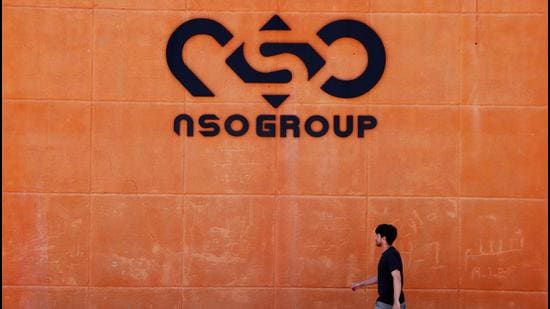Liberal democracies must stand up
Develop norms on surveillance, nudge partners, take on dictatorships, and hold Israel and NSO accountable
As revelations from Project Pegasus continue to make global headlines, one is reminded of a term the former and late United States (US) secretary of defense, Donald Rumsfeld used in 2002 — “unknown unknowns”.

We don’t know what we don’t know about the extent of the surveillance undertaken using the Pegasus spyware and the damage it has done to the lives and dignity of its unsuspecting targets. But there is enough now in the public domain for everyone concerned about civil liberties globally to abandon hand-wringing and attempt a meaningful pushback.
It is easy to be lost in the specifics of the regimes that are suspected to have used Pegasus against targets that were or are, evidently, neither “major criminals” nor “terrorists” — two categories of actors that the developer of Pegasus, NSO Group, claims it is meant for. Regardless of whether a regime was democratic or authoritarian, the fact is that the gratuitous use of Pegasus has fatally harmed civil liberties and deepened the hold of authoritarianism.
An assault on civil liberties anywhere erodes the freedoms enjoyed by people everywhere. For this reason, anyone concerned about their basic freedoms has a stake in the issue. However, leadership on this issue will have to be provided by liberal democratic forces. Governments, world leaders, political parties, organisations and citizens committed to 21st century ideas of human freedom need to step up.
Also Read | Journalists N Ram, Sashi Kumar move SC seeking inquiry into Pegasus use
What can be done?
Start by building a norm. Prioritise a frank and decisive conversation around the impact of technologies such as Pegasus on human freedoms. A start can be made on ground zero. There is a case for ascertaining the accountability of the NSO Group. On June 30, it released its first-ever Transparency and Responsibility Report in which it showcases its commitment to human rights and privacy as it sells what is reportedly the most invasive spyware currently on the surveillance market.
The report is candid in many respects, but also interesting. For instance, it says that the company rejected over $300 million in sales opportunities after vetting its potential customers — “states and state agencies” — on human rights and has decided to not do business with over 55 countries for reasons such as “human rights, corruption, and regulatory restrictions”. That the list of over 55 countries, presumably, excludes at least some of the 10 featured in the revelations invites attention.
Israel is the second and equally important actor on ground zero. The report claims that an agency of Israel’s ministry of defence “strictly restricts the licensing of Pegasus”, independently analysing potential buyers from a “human rights perspective”. On witness here is a complicated terrain; a sovereign State has used its privilege as an international actor to regulate the business of a niche private product meant exclusively for use by other sovereign States but with a high risk of abuse that could mar inter-State relations, harm civil liberties and encourage authoritarianism.
As a responsible member of the international community, Israel will be expected to explain the alleged lapses, and not merely to France. And as a beacon of democracy and human rights in West Asia, it must feel obligated to revisit the arrangement between its sovereign authority and Pegasus.
The problematic nature of the NSO Group-Pegasus-Israel linkage should be seen as an illustration of the global challenge that liberal democratic forces need to confront — the need to draw a line on unaccountable surveillance technologies that have unprecedented invasive power.
The most insidious aspects of Pegasus appear to be its “zero-click” attacks and the near-absolute efficiency with which it compromises the targeted device, exposing unsuspecting citizens to vulnerabilities. Pegasus should mark the tipping point in the global debate that started after the 9/11 terror attacks on the extent to which the civil liberties of citizens can be sacrificed in the name of national security. Two decades ago, the defining challenge before the progressive world was terrorism. Terrorism remains a potent threat, but it has been overshadowed by different forms of authoritarianism. To meet this challenge, liberal democratic forces need to reclaim the ground that they have conceded.
In the near term, they must push for a norm against surveillance technologies — which effectively are weapons — that cause unjustifiable and irreversible harm to human beings. There is precedent for this in the realm of chemical, biological, and even nuclear weapons. But this norm-setting agenda must be backed by a political reorientation. Liberal democratic governments need to abandon their diffidence in dealings with authoritarian forces and assert that constitutional governments that guarantee and verifiably ensure human freedoms are valuable, desirable and preferable.
Over the past decade, as they have confronted authoritarian major powers such as China and Russia, liberal democracies have accommodated authoritarian centralisers of various hues across Europe, West Asia and South Asia. They have praised the democracy of their strategic partners, but hesitated to draw attention to eroding civil liberties within partner democracies. They have, thus, played their part in creating a worldwide culture of impunity in which authoritarian aids such as Pegasus are enabled and deployed.
The revelations present an opportunity to liberal governments to push back against authoritarianism, firstly of friends and partners, and draw a line on unaccountable surveillance. They mustn’t squander it.
Atul Mishra teaches international relations at Shiv Nadar University, Delhi-NCR. His book, The Sovereign Lives of India and Pakistan, will be out in August
The views expressed are personal



